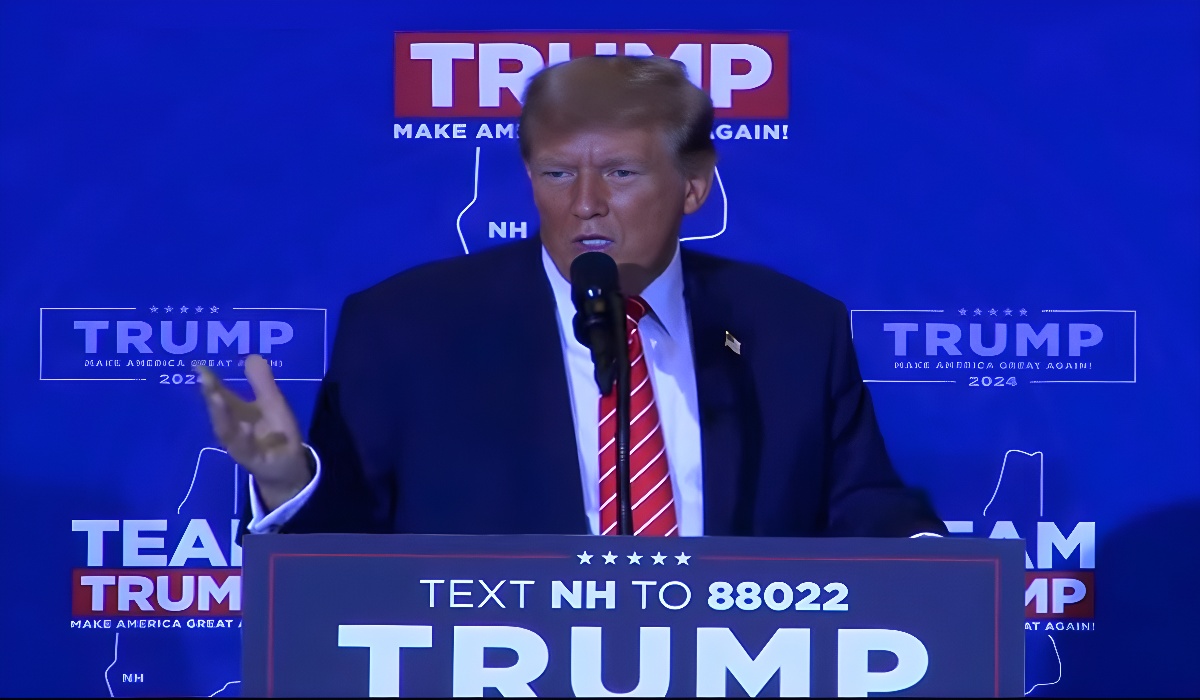The Mental Health Debate: Donald Trump’s Speech Raises Eyebrows and Concerns
- Naomi Dela Cruz
- U.S.A
- January 20, 2024

During a campaign stop last night in New Hampshire, former US President Donald Trump delivered a prime-time speech that left many scratching their heads. One particular aspect of his address raised eyebrows as he consistently referred to the former Speaker of the House, Nancy Pelosi, as Nikki Haley, a candidate running for the presidential nomination. This series of name mix-ups has sparked a conversation about the potential health issues of the former President, with some suggesting early signs of dementia.
It is crucial to note that there is no concrete evidence or official diagnosis from a medical professional regarding Donald Trump’s mental health. However, the consistent confusion in naming significant political figures is undeniable and has left observers questioning Trump’s cognitive abilities. While we cannot definitively claim that the former President is mentally ill, it is evident that something appears to be amiss.
This incident is not the first time Donald Trump has mixed up names or shown signs of confusion, particularly about significant events. In his speech, Trump noted that the administration was offering the Speaker of the House, Nikki Haley, military assistance on January 6, a day that will be forever etched in American history. The mix-up raises concerns about his mental acuity and prompts reflection on what Americans think honestly.
The fact that a considerable portion of the population seems willing to support and potentially reinstate Trump into a position of power raises questions about the electorate’s priorities. Are they willing to overlook potential health issues in favor of political alignment? Or is there a genuine concern for the former President’s well-being, prompting speculation about early dementia?
It is essential to acknowledge that the American people’s willingness to put the country’s future, including control over nuclear capabilities, back into the hands of Trump is a matter of great significance. This decision comes despite a multitude of issues during his previous administration and the current legal challenges he faces. From a litany of legal charges to being found guilty of multiple sexual transgressions and accusations of corruption, Trump’s past is marred with controversy.
While giving people second chances is a commendable sentiment, a clear line must be drawn when it comes to matters impacting national security and the overall integrity of the nation. Trump’s embattled history, especially those involving allegations of sexual misconduct and corruption, has far-reaching implications for how other nations perceive the United States.
The question then arises: why are some willing to overlook these transgressions and potential health concerns? The answer may lie in a complex interplay of political allegiance, policy preferences, and the perception of leadership strength. Supporters may argue that Trump’s unorthodox approach to politics and his steadfast commitment to specific policies outweigh any concerns about his mental acuity.
However, the broader implications of reinstating a leader with a controversial track record raise serious questions about the nation’s values and priorities. Trump’s ability to navigate delicate international relations and uphold the United States standing on the global stage becomes a cause for concern when weighed against potential health issues.
As the nation contemplates the possibility of a Trump resurgence, engaging in a thoughtful and nuanced discussion about the qualities and qualifications deemed essential in a leader is imperative. The American people must weigh the potential risks associated with overlooking Trump’s, at times, tumulous Presidency and potential health concerns against their desire for a particular political direction. As the nation grapples with these considerations, it is essential to prioritize the values and principles that will shape the future of the United States.








